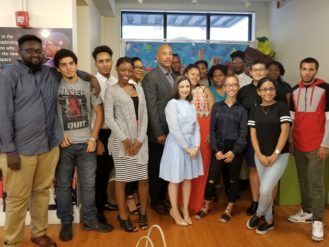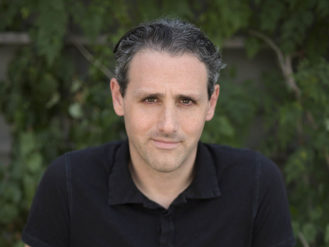Codebridge: Spanning the Gap Between Talent and Tech
How a three-way partnership of Per Scholas, General Assembly and AT&T gives a career boost to students who need it the most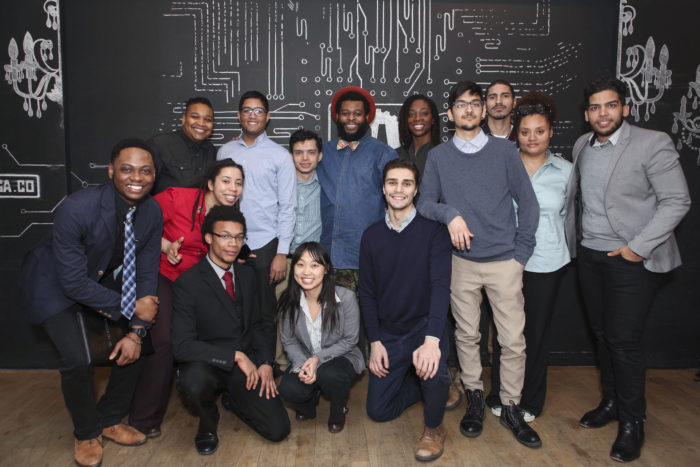
A CodeBridge graduation in New York City with Per Scholas technical instructor Magnardo Tavarez at far right (Photo courtesy of Per Scholas)
“It was one of those things where I thought I was prepared, but it’s something you really can’t prepare for. Once you’re in it, you’re dealing with the intensity.”
Just short of a year out of CodeBridge, 28-year-old Brooklyn resident Mitchell Severe said the program didn’t just teach him how to work in web development—it changed the way he worked, period. The program, launched in 2016, is a joint venture between Per Scholas, General Assembly and AT&T, aimed at giving underserved students an onramp to careers in web development.
“It definitely pushed the boundaries of how I would have worked if I’d done the projects on my own,” Severe said. “Per Scholas gave us a good foundation, but General Assembly itself was super intense and super rigorous. But it’s really rewarding.”
Six months after graduation, Severe, who had worked in IT support and hardware prior to the program, landed a dual-responsibility job in design and front-end web development.
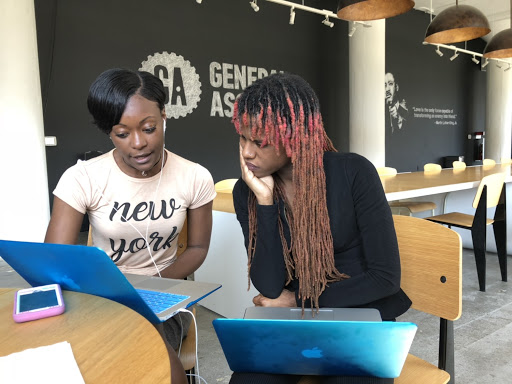
CodeBridge students matriculate into a 12-week intensive course at General Assembly (Photo courtesy of General Assembly)
CodeBridge has been about pushing boundaries from the start. The 18-week, full-time program came out of a series of conversations between the three partner organizations about alternative pathways of learning and success.
“CodeBridge is the first initiative of its kind to offer support from the ground up to underemployed and unemployed adults looking to break into the tech industry, to improve the lives of participants and increase diversity in New York City’s tech sector,” said Marissa Shorenstein, president of AT&T’s Northeast Region. “These young people are the future of the industry, and of AT&T, which is always searching for the next generation of diverse, trained talent.”
The program consists of a six-week web development and job-skills primer at Per Scholas, a non-profit that provides tech training, followed by a 12-week coding boot camp at the education giant General Assembly, which has trained tens of thousands of students. CodeBridge is a needs-based program that’s free of charge to students who qualify.
As a newly created program, CodeBridge is constantly evolving to respond to the needs of its students, according to Per Scholas Curriculum Designer Magnardo Tavarez and Senior Program Director Priya Ramanathan. The curriculum for the first six weeks has changed with nearly every cohort, based on student feedback.
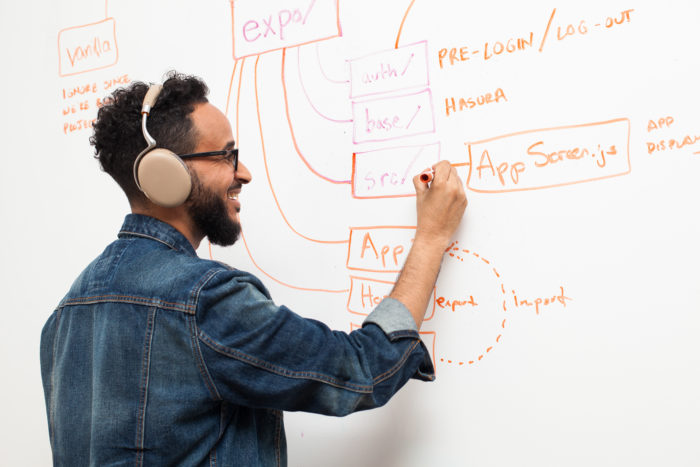
General Assembly, founded in 2011, has graduated more than 40,000 students in tech and business fields
“It’s been an incredibly iterative growth. The code work now is not like the code work before, so we’ve adjusted based on the feedback from the students on what they need more of and what they need less of,” Ramanathan said. Added Tavarez: “We try to make each class a little more intensive, a little more resourceful.”
At the end of six weeks, students give a presentation about what they’ve learned, explaining code to representatives of Per Scholas and General Assembly, who decide whether the students are ready for the next phase. A successful presentation means matriculation into General Assembly’s Web Development Immersive. “It’s a co-presentation and a co-decision,” Ramanathan said.
When they reach General Assembly, the CodeBridge students work alongside students who’ve come directly into the immersive course. The CodeBridge students do, however, have access to Per Scholas support and resources, in addition to General Assembly’s built-in support systems.
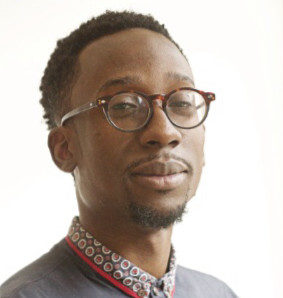
Program graduate Mitchell Severe says the program was rigorous but rewarding (Photo courtesy of Mitchell Severe via LinkedIn)
“The goal really is to ensure that they come in with the confidence and skills to be successful from Day One, plus a network of other students and support,” said Tom Ogletree, General Assembly’s director of social impact.
While Per Scholas and General Assembly handle the curriculum, student feedback and on-the-ground support, AT&T does more than simply write the checks, according to the company’s partners.
“AT&T isn’t just funding the program. They’re thought partners,” said Ogletree. “They’ve been so focused and engaged. Our experiences have informed their perspective, and their programs and experience have informed our perspective. It’s a great partnership because they give us a lot of flexibility. We’ve really valued that collaboration.”
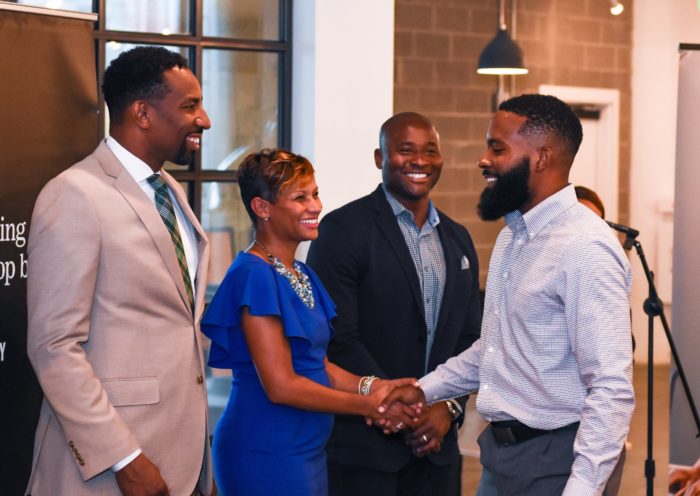
At an expansion of the CodeBridge program to Atlanta, graduates were congratulated by Stephanie Hardy, ATTs regional director, external and legislative affairs (Photo courtesy of General Assembly)
Ramanathan noted that the company has direct interaction with students as well, for example by sending an AT&T executive to speak at graduation. “Just having a funder there to speak to the students about their involvement and the impact of this program was extremely meaningful,” she said.
The collaboration is producing good results. CodeBridge has an 83% graduation rate and a 60% full-time employment rate among students who are at least four months out of the program. According to Caitlyn Brazill, a Per Scholas executive vice president, students enter the program with an average annual income of under $10,000; graduates earn upwards of $50,000 a year. “This is a huge transformation in terms of people’s families and their abilities to move forward. It’s really putting people on an entirely different track,” she said.
CodeBridge alumna Treniese Ladson had previously worked as a diamond grader, which she found to be tedious work for modest pay. The CodeBridge program did not just put her on a different track financially, it introduced her to her passion. “I could not see myself grading all day. Now when I leave work I still go home to do more coding and I’m always wanting to learn more about it,” she said.
According to Ogletree, igniting that passion is what makes the program worthwhile for everyone involved. “It’s not about our different organizational priorities, it’s about making sure that the students are set up for success. The talent is off the charts, and seeing them unleash that and turn that into a career change is just really exciting to watch.”





